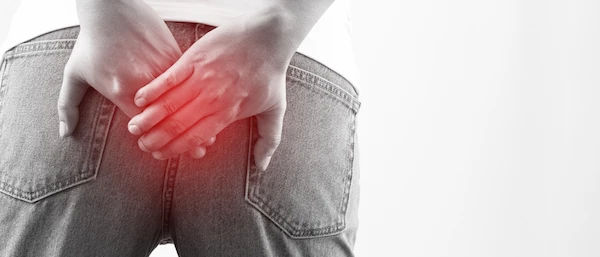Guide to the Myth: Eating a High-Protein Diet Damages Your Kidneys
Is a high-protein diet really harmful to your kidneys? Discover the truth behind the myth, what research shows for healthy adults, and who should be cautious.

Written by Dr. Mohammed Kamran
Reviewed by Dr. Dhankecha Mayank Dineshbhai MBBS
Last updated on 15th Sep, 2025

Introduction
For decades, a persistent piece of dietary advice has echoed through gyms and wellness blogs: eating too much protein will damage your kidneys. This idea has scared countless healthy adults away from prioritising this crucial macronutrient, fearing they might inadvertently harm their vital organs. But where did this belief come from, and does it hold up under scientific scrutiny? This article cuts through the noise to deliver evidence-based answers. We will explore the origin of this widespread myth, examine what the latest research says about protein intake in healthy individuals, and clarify who actually needs to be concerned. By the end, you'll have a clear understanding of how to fuel your body confidently and support your long-term health without unfounded fear.
What Do Your Kidneys Actually Do?
Your kidneys are two bean-shaped powerhouses located just below your rib cage. Think of them as your body's most sophisticated water filtration plant. Their primary job is to filter waste products and excess fluids from your blood, which are then excreted as urine. This process is crucial for maintaining a stable balance of salts and minerals in your bloodstream.
The Filtration Factory: Understanding Glomeruli
The key players in this process are tiny structures within the kidneys called nephrons. Each kidney contains about a million nephrons, and each nephron has a cluster of tiny blood vessels known as a glomerulus. These glomeruli act as delicate filters, allowing waste products and water to pass through while keeping important cells and proteins in the blood. The health of these glomeruli is central to the protein and kidney debate.
Waste Management and Fluid Balance
Beyond filtration, your kidneys perform several other critical tasks. They release hormones that regulate blood pressure, produce red blood cells, and ensure your bones stay strong by activating vitamin D. When you consume protein, your body breaks it down into amino acids, which are used for repair and growth. The byproduct of this metabolism is nitrogen, which is converted into urea—a waste product that your kidneys efficiently filter out. This is a normal, healthy process.
Consult a Nutritionist or Nephrologist for the best advice
Where Did the "High Protein Hurts Kidneys" Myth Come From?
The myth that a high protein diet causes kidney damage is not entirely baseless; it simply stems from a case of mistaken application.
The Origin: Observational Studies on Kidney Patients
The concern originated from observations of people with pre-existing chronic kidney disease (CKD). In patients with compromised kidneys, a high-protein diet can indeed accelerate the decline in function. Damaged kidneys struggle to handle the increased nitrogen load and glomerular pressure from protein metabolism, leading to a faster progression of the disease. For these individuals, doctors rightly prescribe a protein-restricted renal diet.
The Mistake: Applying Sick-Kidney Logic to Healthy Kidneys
The error was in extrapolating data from a sick population to a healthy one. It's like concluding that running is bad for everyone because it causes pain in people with a broken leg. For healthy kidneys, the increased workload from processing protein is a normal adaptive function, not a danger. The organ is designed to handle these fluctuations efficiently.
What Does Science Actually Say? Debunking the Myth
Robust scientific evidence has consistently failed to find a link between high protein intake and kidney damage in healthy individuals.
Major Studies on Healthy Individuals and Protein Intake
A comprehensive review published in the Journal of Nutrition and Metabolism concluded that while high-protein diets do cause changes in kidney function (like increased glomerular filtration rate), these changes are entirely normal and adaptive, not harmful. The kidneys simply ramp up their filtration rate to clear the additional urea and metabolic byproducts—a phenomenon called hyperfiltration.
The Framingham Offspring Study Insights
One of the most cited long-term studies is the Framingham Offspring Study. Researchers found no association between higher protein intake (even over 100g per day) and decline in renal function in healthy adults with normal blood pressure and blood sugar levels. This large-scale, multi-year study provides strong evidence against the myth.
Understanding the Concept of "Hyperfiltration"
The temporary increase in GFR after a protein-rich meal is often mistakenly labeled as "stress" on the kidneys. However, this is a physiological response, similar to how your heart rate increases during exercise. It's a sign that the organ is doing its job effectively, not that it's being damaged.
Who Should Actually Be Concerned About Protein Intake?
While healthy adults need not worry, certain groups must be vigilant about their protein consumption.
Individuals with Pre-Existing Kidney Disease (CKD)
This is the primary group for which the warning is valid. If you have been diagnosed with any stage of CKD, your nephrologist will likely recommend a controlled protein intake to reduce the burden on your already compromised kidneys and slow the disease's progression.
Those at High Risk for Kidney Disease (e.g., Diabetes, Hypertension)
People with uncontrolled type 2 diabetes or high blood pressure are at significantly higher risk of developing kidney disease. If you fall into this category, it is crucial to manage your underlying conditions and discuss your dietary protein goals with your doctor. If you have diabetes or hypertension and are concerned about your kidney health, consulting a doctor online with Apollo24|7 can help you create a safe and effective dietary plan.
The Real Benefits of a Higher Protein Diet
Focusing on the unfounded risks obscures the well-documented benefits of adequate protein intake.
Muscle Growth, Repair, and Sarcopenia Prevention
Protein provides the essential building blocks (amino acids) for maintaining and building muscle mass. This is crucial not only for athletes but also for aging adults to prevent sarcopenia—the age-related loss of muscle, which is a major predictor of frailty and loss of independence.
Weight Management and Satiety
Protein is the most satiating macronutrient. Diets higher in protein have been shown to boost metabolism, reduce appetite, and lead to automatic reductions in calorie intake, making it a powerful tool for healthy and sustainable weight management.
Potential Downsides (That Aren't Kidney-Related)
The real considerations for a high-protein diet lie elsewhere.
The Importance of Hydration
Processing more protein produces more urea, which requires more water to flush out. Dehydration is a real risk if you increase protein without upping your water intake. Aim for at least 8-10 glasses of water daily.
Source Matters: Processed Meats vs. Lean Proteins
A diet high in processed red meats (bacon, sausages, deli meats) has been linked to other health issues, including heart disease and certain cancers. The downsides are not from the protein itself but from the saturated fats, sodium, and preservatives. Focus on lean sources like chicken, fish, eggs, legumes, and dairy.
Conclusion
The fear that a high protein diet will damage your kidneys is one of the most persistent and misleading myths in modern nutrition. As we've explored, this belief stems from a misinterpretation of data from sick populations and does not apply to individuals with healthy kidney function. The scientific consensus is clear: for healthy adults, a diet higher in protein does not pose a risk to renal health and, in fact, offers significant benefits for muscle maintenance, metabolic health, and satiety.
The real keys to protecting your kidney health are managing underlying conditions like hypertension and diabetes, staying well-hydrated, and choosing whole, lean protein sources over processed alternatives. Always remember that individual needs can vary. If you have a pre-existing health condition or a family history of kidney disease, it is always prudent to consult with a healthcare professional or a registered dietitian before making major dietary changes. You can easily book a consultation with a nutritionist or nephrologist through Apollo24|7 to get personalised advice. Don't let an outdated myth prevent you from enjoying the numerous benefits that adequate protein intake provides.
Consult a Nutritionist or Nephrologist for the best advice
Consult a Nutritionist or Nephrologist for the best advice

Dr. Gaurav Sagar
Nephrologist
13 Years • MBBS, MD, DNB
Delhi
Apollo Hospitals Indraprastha, Delhi
(50+ Patients)

Dr Vinay Kumar A V
Nephrologist
8 Years • MBBS, MD - General Medicine, DM - Nephrology
Bilaspur
Apollo Hospitals Seepat Road, Bilaspur

Dr. Ch. Anil Kumar
Nephrologist
6 Years • MBBS., MD., DM
Kakinada
Apollo Hospitals Surya Rao Peta, Kakinada

Dr S P Omkumar
Nephrologist
6 Years • MBBS, MD NEPHRO
Chennai
Apollo Clinic, Valasaravakkma, Chennai

Dr. Archana Chiniwalar
Nephrologist
6 Years • MBBS, MD (Internal Medicine), DM (Nephrology)
Bengaluru
Apollo Medical Center, Marathahalli, Bengaluru
Consult a Nutritionist or Nephrologist for the best advice

Dr. Gaurav Sagar
Nephrologist
13 Years • MBBS, MD, DNB
Delhi
Apollo Hospitals Indraprastha, Delhi
(50+ Patients)

Dr Vinay Kumar A V
Nephrologist
8 Years • MBBS, MD - General Medicine, DM - Nephrology
Bilaspur
Apollo Hospitals Seepat Road, Bilaspur

Dr. Ch. Anil Kumar
Nephrologist
6 Years • MBBS., MD., DM
Kakinada
Apollo Hospitals Surya Rao Peta, Kakinada

Dr S P Omkumar
Nephrologist
6 Years • MBBS, MD NEPHRO
Chennai
Apollo Clinic, Valasaravakkma, Chennai

Dr. Archana Chiniwalar
Nephrologist
6 Years • MBBS, MD (Internal Medicine), DM (Nephrology)
Bengaluru
Apollo Medical Center, Marathahalli, Bengaluru
More articles from General Medical Consultation
Frequently Asked Questions
Can protein shakes damage your kidneys?
No, protein shakes from reputable sources are simply a concentrated form of dietary protein, like that found in food. They are safe for healthy kidneys when consumed as part of a balanced diet and with adequate water intake.
What are the symptoms of kidney damage from too much protein?
In healthy individuals, there are no symptoms because damage does not occur. For those with advanced kidney disease, symptoms include fatigue, swelling, changes in urination, and nausea. If you experience these symptoms, it is important to see a doctor for evaluation. Apollo24|7 offers a convenient home collection for tests like serum creatinine and eGFR to assess kidney function.
How much protein per day is safe?
For most healthy adults, a safe and beneficial intake ranges from 1.2 to 2.0 grams of protein per kilogram of body weight. For a 70kg (154 lbs) person, this is 84 to 140 grams per day. Intakes significantly above this are not shown to be harmful but may offer diminishing returns.
Does a high-protein diet increase creatinine levels?
Yes, it can. Creatinine is a waste product from muscle metabolism. Eating more protein (and especially more meat) can cause a temporary, harmless rise in serum creatinine levels. Doctors account for this when interpreting kidney function tests.
Should I get my kidney function tested before increasing protein?
If you are healthy with no history of kidney issues, it's likely unnecessary. However, if you are over 50, have high blood pressure, diabetes, or a family history of kidney disease, getting a baseline test is a smart precaution. You can schedule a blood test with home collection through Apollo24|7 to check your kidney function easily.




